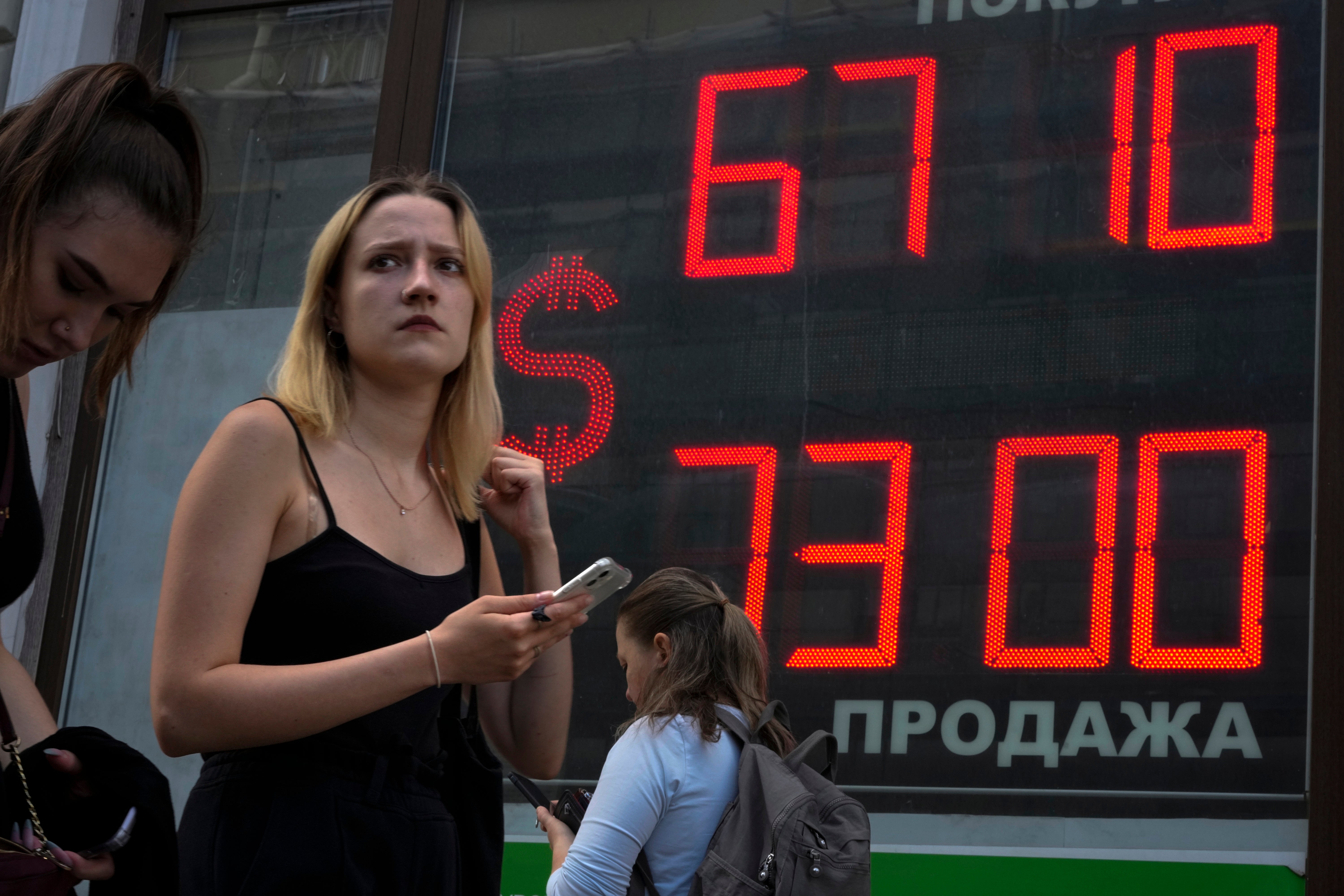Russia's central bank slashes rate, saying inflation slows
The Russian central bank has slashed its key interest rate just a month after dropping it to where it was before sending troops into Ukraine, saying inflation is still easing partly as consumer demand falls

Your support helps us to tell the story
From reproductive rights to climate change to Big Tech, The Independent is on the ground when the story is developing. Whether it's investigating the financials of Elon Musk's pro-Trump PAC or producing our latest documentary, 'The A Word', which shines a light on the American women fighting for reproductive rights, we know how important it is to parse out the facts from the messaging.
At such a critical moment in US history, we need reporters on the ground. Your donation allows us to keep sending journalists to speak to both sides of the story.
The Independent is trusted by Americans across the entire political spectrum. And unlike many other quality news outlets, we choose not to lock Americans out of our reporting and analysis with paywalls. We believe quality journalism should be available to everyone, paid for by those who can afford it.
Your support makes all the difference.The Russian central bank slashed its key interest rate Friday just a month after dropping it to where it was before sending troops into Ukraine, saying inflation is still easing partly as consumer demand falls.
The bank lowered its key rate by 1.5 percentage points, to 8%. It said inflation expectations have “significantly decreased," reaching spring 2021 levels, while a decline in business activity was slower than expected in June.
However, “the external environment for the Russian economy remains challenging and continues to significantly constrain economic activity," the central bank said in a statement.
It had hiked the rate as high as 20% in the wake of the Feb. 24 military operation in Ukraine and the resulting Western sanctions that restrict dealings with Russian banks, individuals and companies.
As sanctions and the exit of Western companies from Russia have led to global economic isolation, the central bank has managed to stabilize the currency and financial system by preventing money from leaving Russia and forcing exporters to exchange most of their foreign earnings into rubles.
The ruble traded at 58.8 to the dollar Friday, making it worth more than the day before the invasion of Ukraine, when it took 78.8 rubles to reach $1.
The bank said annual inflation fell to 15.9% in June, compared with 17.1% in May, and estimated it slid to 15.5% as of July 15. It cited “subdued consumer demand” and the ruble's exchange rate for the drop.
“The recent essentially involuntary accumulation of savings is a compressed spring in the economy, which can cause dramatic consumption growth under certain circumstances," central bank head Elvira Nabiullina said at a news conference. “It can quickly speed up demand inflation when the offer of goods and services is limited.”
The bank expects inflation to keep going down — to 12-15% this year, to 5-7% in 2023, and 4% in 2024.
The interest rate cut comes as central banks around the world are rushing in the opposite direction, raising rates to combat inflation fueled by Russia’s actions in Ukraine. The European Central Bank on Thursday made a bigger-than-expected hike of half a percentage point as high energy prices tied to the military operation drive up consumer prices to 8.6%.
Those energy costs are benefiting Russia, a major oil and natural gas exporter. Despite energy income growing and the central bank propping up indicators like the exchange rate, the long-term impact of Russia’s global isolation will be deepening economic stagnation and lower incomes for its people, economists say.